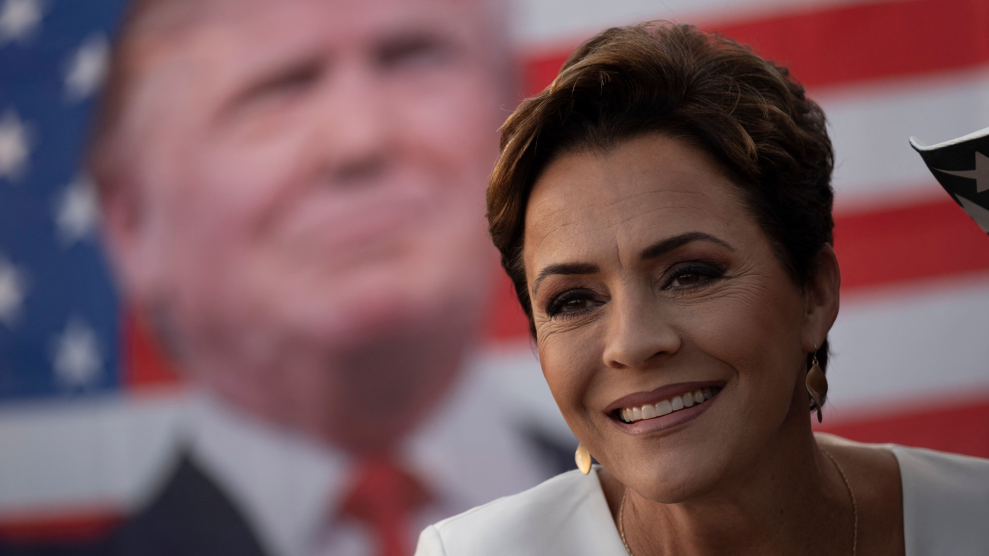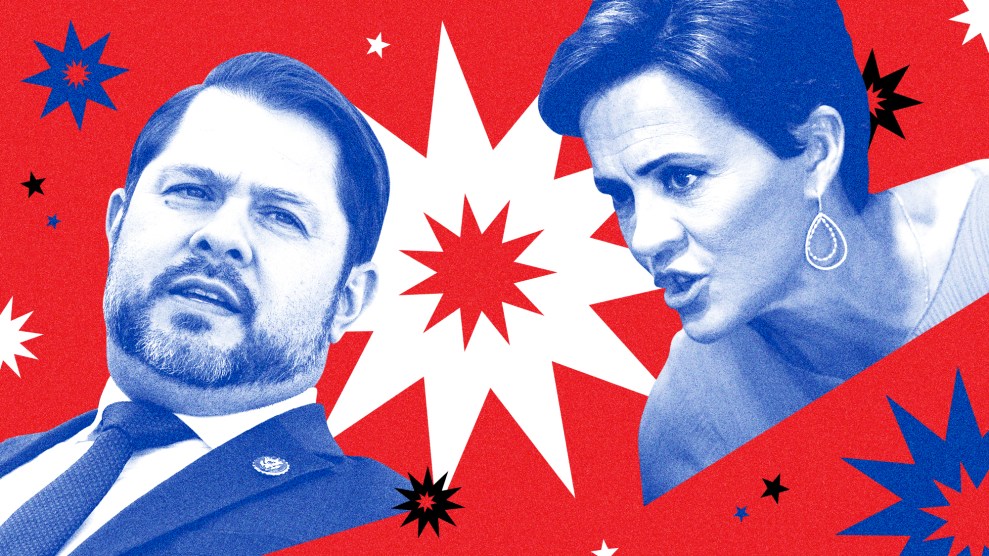
Ricardo Arduengo/Getty
Shortly after the Arizona Supreme Court upheld a Civil War-era, near-total ban on abortion on Tuesday, Republican Senate hopeful and former gubernatorial candidate Kari Lake blasted the decision as “out of step with Arizonans.”
She declined, however, to explain the apparent about-face. Two years ago on the gubernatorial campaign trail, Lake eagerly praised the 1864 law, which if enforced would make nearly all abortions in the state illegal and potentially criminalize healthcare providers with up to five years in prison.
“I’m incredibly thrilled that we are going to have a great law that’s already on the books,” Lake said on a June 2022 episode of “The Conservative Circus with James T. Harris,” adding that the law would enable Arizonans to “be paving the way and setting the course for other states to follow.”
Lake is a longtime supporter of Donald Trump and has repeatedly celebrated the impacts of overturning Roe v. Wade. Like Trump, she still denies her 2022 election loss to now-governor, Democrat Katie Hobbs. But amid immediate outrage over Tuesday’s decision allowing the 1864 law to go into effect, Lake appeared to forget her previous support for the very same law and urged Hobbs to “come up” with a solution.
When Ruben Gallego, the expected Democratic nominee for Senate in Arizona, called out Lake’s previous support for the law on Tuesday, Caroline Wren, a senior adviser to Lake, claimed on X that Lake had been referring to the state’s 15-week abortion ban in 2022. Yet in the original interview, Lake mentioned the 1800s-era law by name.
Lake joins other Republicans in the state who were quick to try and distance themselves from this week’s ruling, including Rep. David Schweikert, the same congressman who said that he was “pleased” by the fall of Roe. Speaker of the Arizona House of Representatives Ben Toma and President of the Arizona Senate Warren Petersen submitted an amicus brief in support of the 1864 law, then released a joint statement promising to listen “to our constituents to determine the best course of action for the legislature.”
When asked about the Arizona law on Wednesday, Trump said that Arizona went too far. But pushed on the question of criminalizing health care providers, Trump, who despite helping overturn Roe is attempting to feign moderation in the lead-up to November, responded with classic vaguery. “Let that be to the states.”
Following the state Supreme Court’s ruling, it’s unclear if and how the 1864 ban will be enforced. The law goes into effect in 13 days, and there’s a 45-day gap following the official mandate when it’s not legally enforceable. Planned Parenthood, which operates most clinics in the state, said they will continue to give care throughout that period. The state’s Attorney General Kris Mayes said she will not prosecute any “woman or doctor” under the law.













